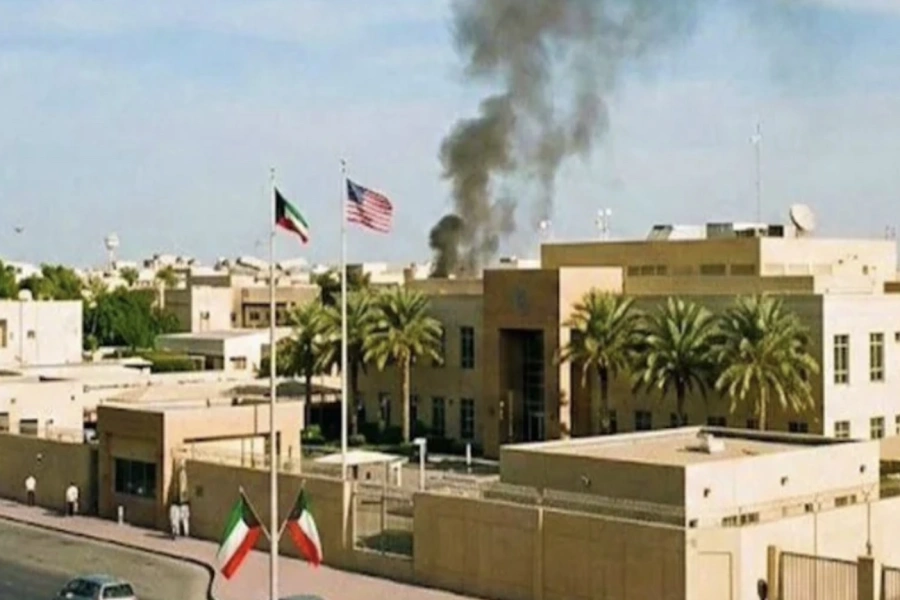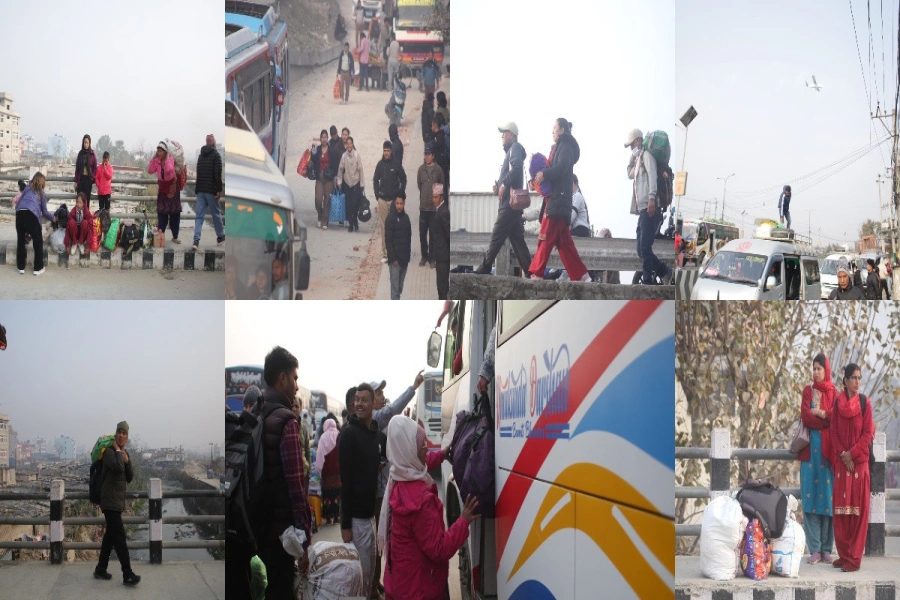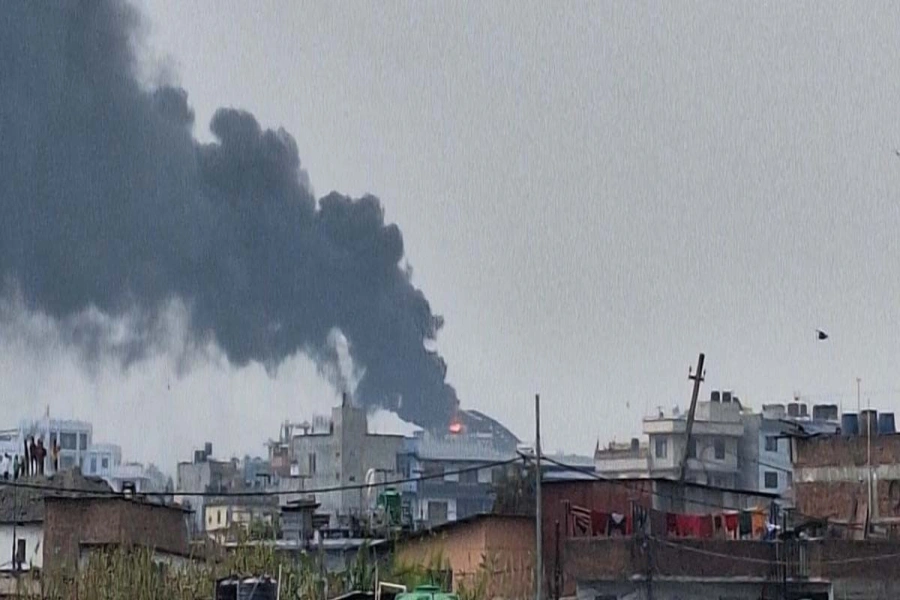Domestic and foreign policy problems are often inseparable. A nation is no stronger abroad than it is at home. The strength of foreign policy is based on sound and strong domestic policies. The strength abroad comes from the strength at home.
Nepal held the second general elections to elect 275 members of the House of Representatives - 165 under the First Past the Post (FPTP) system and 110 under the proportional representation (PR) system - and 550 members of the seven provincial assemblies (330 under the FPTP system and 220 under the PR system) on November 20 since the adoption of the Constitution of Nepal 2015 drafted by the elected people’s representatives. The recent elections have produced a fractured mandate, and a divided House, both at the federal and the provincial levels, which is likely to start another cycle of instability in the country.
The election results are being interpreted as an indication of the long-term trend of people’s resentment, anger, disappointment, disillusionment, and frustration with the leadership showing no performance and delivery. This obviously creates a space for new players who capitalize on the hollow speeches of political parties with no delivery. Their one-point agenda has been to repudiate traditional political elites. The central pillar of the political wrath is alluded to patronage and power-centric politics. There is little room for substance, let alone strategic thinking and approach to pull the country out of the morass.
The political contestation has been more about power, and less about policy, agenda, and commitments. In the voters’ minds, there were issues of economy, health, education, development and law and order. Like in other countries, the Covid-19 pandemic shattered normal life in Nepal, which has been further compounded by Russia’s invasion of Ukraine on February 24. There are deep fault lines emerging and multiplying from the high Himalayas to the sea. Global power equations are changing fast. The Western led global order is in question. The gravity of geopolitics is rapidly shifting to Asia, inviting great powers’ play. The mistrust between two great powers, the US and China, is growing. There are multiple complex strategic and political messages emanating from different corners. The humanitarian crisis is deepening. Countries are facing food insecurity. The economic downturn is compounding with the backbreaking inflation, shrinking foreign exchange reserves, deepening inequality, growing joblessness and there is an exodus of the working population abroad in search of job opportunities. Climate change is transforming the landscape with deadly heat waves, wildfires, superstorms and melting of glaciers. Broken politics, and fractured mandate add multiple complexities. Taken together, they fuel social grievances, and trigger greater political volatility exacerbating the trends of centrifugal forces.
Geopolitics waits for no one and comes down heavily with its own interests. It is cruel, shows no compassion or love or humanitarian concerns. No country could remain unaffected from these impacts in this increasingly interconnected and interdependent world. Nepal has to cope with the emerging scenario and keep a close watch on the ongoing developments and their possible implications for its national interests.
Nepal hopes for improved relations with India as PM Modi begins...

Fears of instability
Whatever coalition emerges, political instability and uncertainty are likely to grow. In this fluid situation, policy-making will become tougher. Past experiences of coalition governments have shown that power-sharing in a coalition government of disparate parties makes the government weak with each coalition partner treating their portfolios as their own fiefdom, with no sense of joint Cabinet responsibility. Sharing the spoils of office and appointments to several constitutional positions further add complexities and burdens on the nation. This ultimately hampers the much-needed coordination in policy matters. The government’s entire approach to its foreign policy suffers damagingly. It curtails the government’s ability to make any credible initiatives, and extremely limits Kathmandu’s room for maneuver. Such a situation grants external powers more space for influencing the policymaking process. Extremely sensitive, complex and fragile geopolitics looms large in Nepal for its neighbors’ close and high interests. Plus foreign policy issues are politically charged in Nepal, and for a multiplicity of reasons, radical parties remain outwardly obsessed to equate Nepali nationalism with anti-Indianism. The doublespeak only weakens the country’s capacity and erodes its credibility. This introduces specific implications for a number of key geopolitical areas. The year 2023 seems to be a very difficult and different year.
Ever since the world’s two most populous Asian countries and Nepal’s immediate neighbors China and India catapulted into the world stage, the emerging twin giants with their increasing economic strengths have transformed international economy - trade, investment pattern, world energy markets - directly affecting the planet’s environment, and the global and regional geopolitical landscape in fundamental ways. As geopolitical rivalries speed up, China and India’s imprint will increase all the deeper in the years ahead. Balancing relations with the immediate neighbors and the United States of America which is a ‘neighbor on the other side of the globe’ to quote US President Ronald Reagan, will occupy Nepal’s immediate attention and engagements. All three powers have their competing and conflicting interests in Nepal and are working to deepen their presence and widen their influence in the country. The interests of the European Union, Britain, Japan and others are no less important, thanks to Nepal’s strategic location bordering the Tibet Autonomous Region of the People’s Republic of China, which is its core foreign policy and security concern. The state of their play in the bilateral relationship, perceptions, and interests of each of these countries cannot be ignored. This puts Nepal in a delicate geopolitical situation to conduct its foreign policy. Outsiders become the prime beneficiaries of instability and uncertainty, exploit the internal rivalries and sow the seeds of deep social divisions to their advantages. Whatever be the changes in international relations, preserving sovereignty, protecting independence, and maintaining unity, harmony and tolerance in diversity should remain the foremost objective of any foreign policy.
India, China and the US
India has several concerns in Nepal. The new government is expected to make a decision on the Agnipath scheme which was deferred by the incumbent government. Whatever be the decision, it may affect the future of Gurkha recruitment and those currently in the service of the Government of India. Border issues are equally touchy and sensitive. The opposition leader and former prime minister KP Oli started his election campaign from Darchula - a district in the far west adjoining the Pithoragarh district of the Indian state of Uttarakhand and the seat of border disputes. On the campaign trail, there were sharp exchanges between him and Prime Minister Sher Bahadur Deuba on resolving the issue. The northern neighbor is keeping a close watch on the developments in Nepal in a larger geo-strategic context. On the US bilateral grant of $500 million under the Millennium Challenge Corporation extended to Nepal for the construction of transmission lines to India and improvement of road infrastructures, there were sharp exchanges between the US and China. China considered the grant as a part of the US promoting its Indo-Pacific Strategy (IPS) to contain it. Beijing has termed MCC verification by Nepal’s parliament as ‘coercive diplomacy.’ China has launched the Belt and Road Project (BRI) and calls it the “project of the century.” Beijing has also signed the BRI framework agreement with Nepal which envisages trans-Himalayan electric transmission lines and railway network between Nepal and China. This shows the growing interest of foreign powers in Nepal.
Nepal sitting in a key strategic region between India bordering on three sides - east, west and south - and China’s sensitive province of Tibet-on the north “forms the geopolitical heartland of Asia,” adding its importance to great and emerging powers alike. As the center of the geopolitical gravity shifts rapidly to Asia, Nepal’s strategic location is high on their watchlist. The country’s persistent struggles with political instability and uncertainty will impact its foreign policy aspirations. It is totally unrealistic to think that Nepal can gain cooperation from its neighbors without dealing with their real and legitimate interests. While no foreign policy can neglect relations with the neighbors, Nepal should also be mindful of protecting its own dignity and interests. Setting the country on a collision course with its neighbors would be suicidal when it is considerably weakened from within.
All political parties swear by the fundamental principles provided in the Constitution relating to the conduct of international relations. They include conducting an independent foreign policy based on the Charter of the United Nations, non-alignment, principles of Panchsheel, international law and the norms of world peace (Article 51-m). Nepal opposes interference by any country in any other country’s sovereignty, territorial integrity, and independence.
Domestic and foreign policy problems are often inseparable. A nation is no stronger abroad than it is at home. The strength of foreign policy is based on sound and strong domestic policies. The strength abroad comes from the strength at home. National unity is the source of external credibility. Internal disunity and differences depress and weaken foreign policy, paralyzing its conduct. Outsiders take full advantage of domestic difficulties and compulsions to introduce intrusive dimensions in international relations in the name of determining the standards of good governance, human rights, and sociopolitical conditionalities for extending development assistance. The pressure grows incrementally. Whenever Nepal has been in internal difficulties, outsiders have taken full advantage and created more space for themselves.
Partisanship and foreign policy do not go together. Nepal must build a national consensus in foreign policy to speak as one nation. While democracy does not function without political parties, the latter do not hesitate to practice political opportunism, adhocism, double standards, and undermining of institutions and pursue self-interests even at the cost of the larger interests of the nation. The opposition, irrespective of their deep internal differences on a range of issues, should come together in creating a broad consensus on foreign policy and be “loyal” to the interests of the nation. The parties outside the government should be watchful of the government’s policies but speak as one nation on issues of national interests.
Foreign affairs should not be allowed to become a political football. In Nepal, there is a dangerous type of partisanship in foreign policy. It should stop immediately. This is best done by keeping one’s house in good order and condition and forging national unity. If we do not realize the intensity and severity of the rising tensions, complex, sensitive, and fragile geopolitics at our doorsteps, foreign powers start intrigues in Nepal, as BP Koirala warned, while returning home on December 30, 1976, after eight years of exile in India, “Making Nepal a center of international conspiracy.” He said then, in Nepal, “There is a preponderance of self-seeking, communalism (regionalism), individualistic mentality and a tendency to look to foreign hands. In a situation like this, nationalism is the first casualty.” These tendencies have become more pronounced now than they were then. BP had the premonition of a dangerous situation developing around the subcontinent and Nepal becoming a playground of foreign powers. A hung House with fractured mandate and political parties too diverse and varied with their ideologies and interests to act unitedly presents the dangerous strategic vulnerability of the country. What is needed is better, principled, and more mature politics and visionary leadership who can figure out the multiple complex political and strategic messages emanating from various quarters and put the nation above everything else. Nepal must do a better job of explaining its message and missions to the rest of the world.





-1200x560-1772467693.webp)

































